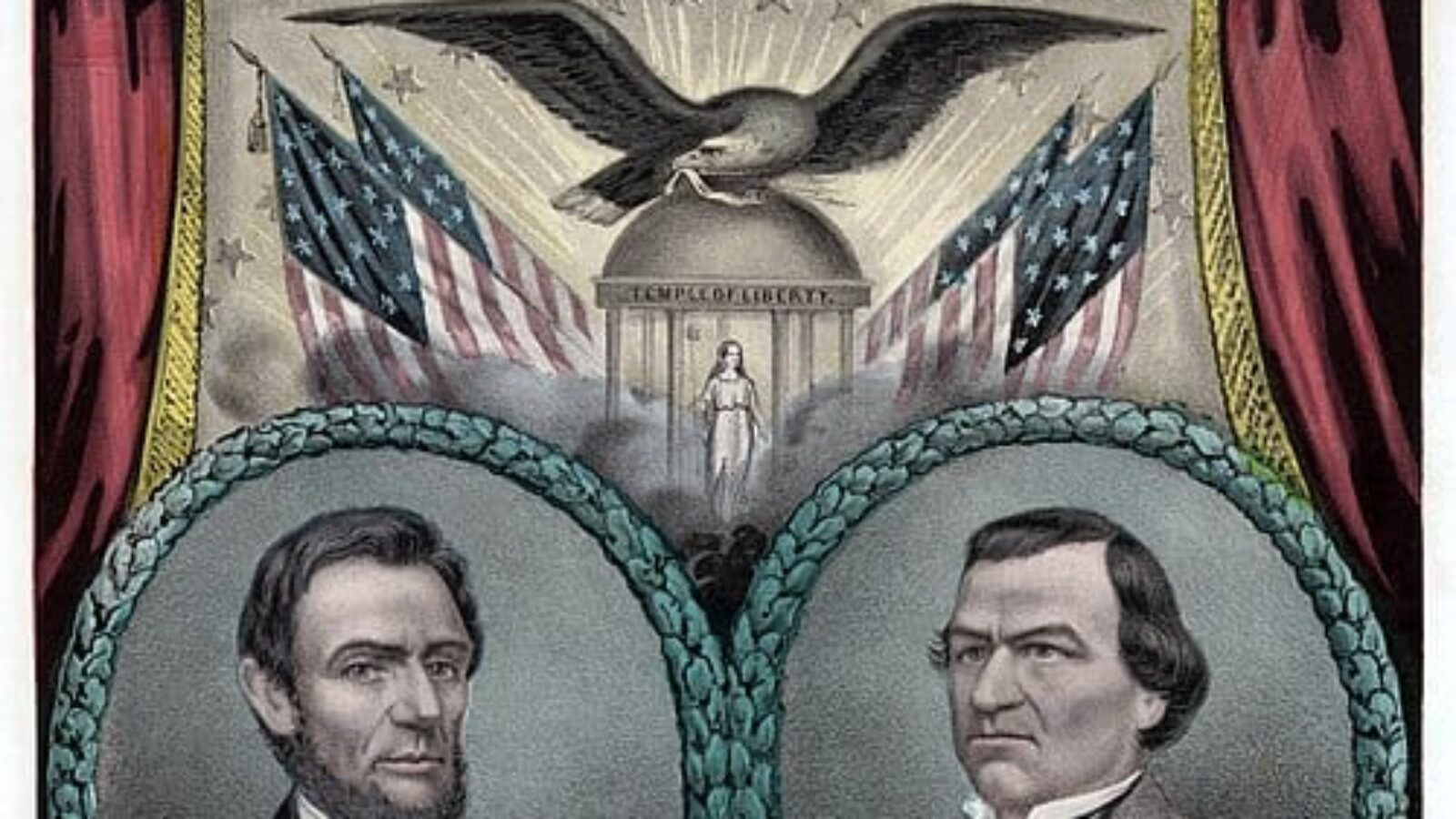June 7, 1864: Amidst the Civil War, President Lincoln remained popular with the Republican Party. Some War Democrats joined Republicans to form the National Union Party, and together they renominated Abraham Lincoln for a second term as president of the Union. The nominating convention was held in Baltimore, Maryland.
1864 United States presidential election
From Wikipedia, the free encyclopedia
National Union Party
Before the election, some War Democrats joined the Republicans to form the National Union Party.[8] With the outcome of the Civil War still in doubt, some political leaders, including Salmon P. Chase, Benjamin Wade, and Horace Greeley, opposed Lincoln’s re-nomination on the grounds that he could not win. Chase himself became the only candidate to contest Lincoln’s re-nomination actively, but he withdrew in March when a slew of Republican officials, including some within the state of Ohio upon whom Chase’s campaign depended, endorsed Lincoln for re-nomination. Lincoln was still popular with most members of the Republican Party, and the National Union Party nominated him for a second term as president at their convention in Baltimore, Maryland, on June 7–8, 1864.[9] The party platform included these goals: “pursuit of the war, until the Confederacy surrendered unconditionally; a constitutional amendment for the abolition of slavery; aid to disabled Union veterans; continued European neutrality; enforcement of the Monroe Doctrine; encouragement of immigration; and construction of a transcontinental railroad.” It also praised the use of black troops and Lincoln’s management of the war.[10]
With incumbent vice president Hannibal Hamlin remaining indifferent about the prospect of a second term in office, Andrew Johnson, the former senator from and current military governor of Tennessee, was named as Lincoln’s vice presidential running-mate. He had been governor of Tennessee from 1853 to 1857 and was elected by the legislature to the Senate in 1857. In his congressional service, he sought passage of the Homestead Bill which was enacted soon after he left his Senate seat in 1862. When the Southern slave states, including Tennessee, seceded, he remained firmly with the Union. He was the only sitting senator from a Confederate state who did not resign his seat upon learning of his state’s secession. In 1862, Lincoln appointed him as military governor of Tennessee after most of it had been retaken. In 1864, Johnson was a logical choice as running mate for Lincoln, who wished to send a message of national unity in his re-election campaign, especially to ensure the electoral votes of the border states.
Others who were considered for the nomination, at one point or another, were former Senator Daniel Dickinson, Major General Benjamin Butler, Major General William Rosecrans, Joseph Holt, and former Treasury Secretary and Senator John Dix.
